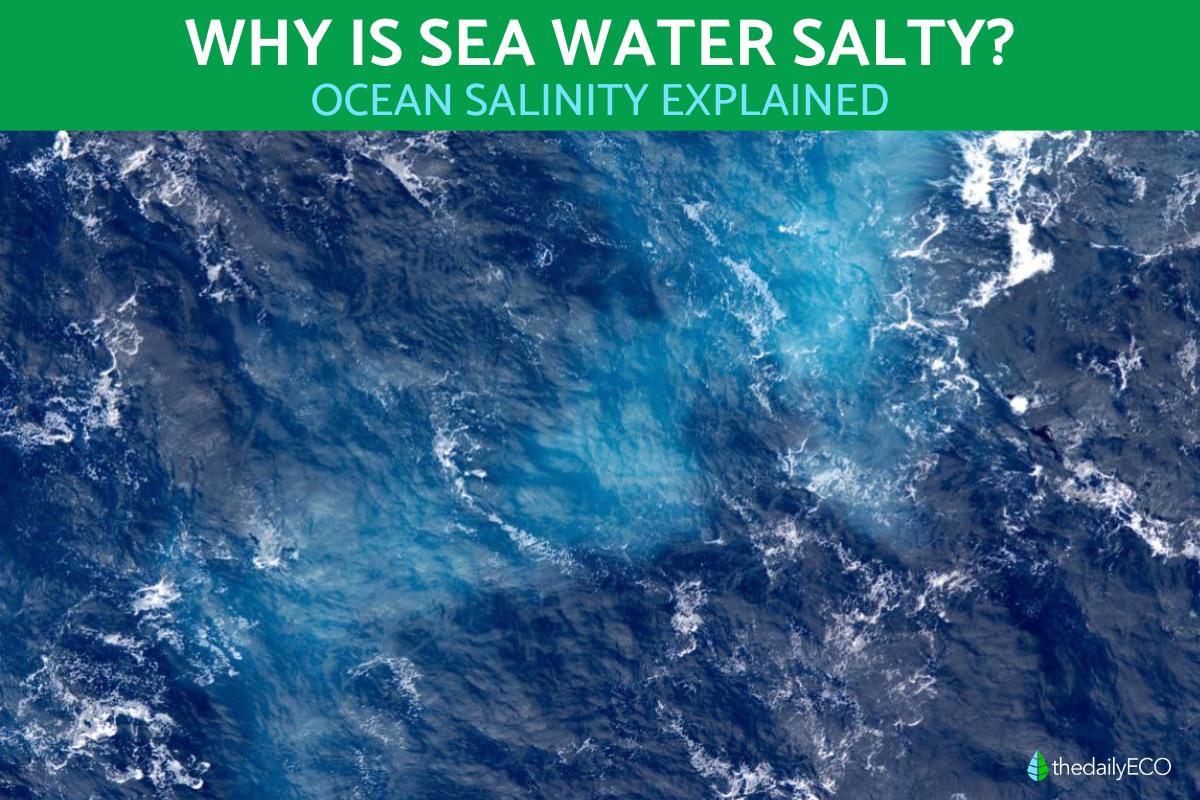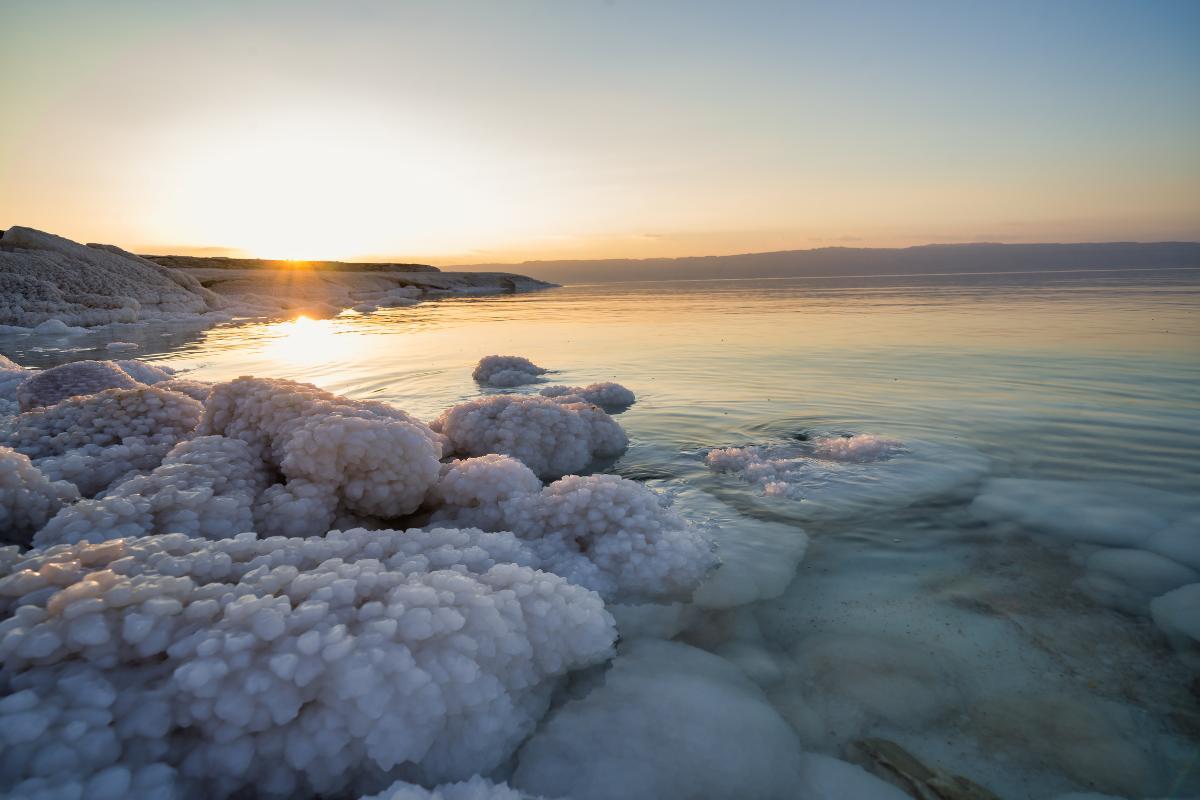Why Is Sea Water Salty?


Seawater is salty because of the high concentration of different dissolved salts it contains. Historically, there have been various theories as to the high salinity of water, such as that posed by Edmund Halley in the 18th century. While he was correct that dissolved minerals and salts run off through rivers into the ocean, his theory did not fully encompass the reason why the sea is salty. For example, he didn't include the involvement of hydrothermal vents on the sea floor and related volcanic activity. Understanding these processes can help us understand ocean salinity while other bodies of water such as rivers and lake contain fresh water. thedailyECO explains all by asking why is sea water salty?
Why is sea water salty?
Sea water is salty due to the high concentration and variety of dissolved salts that it contains. The most abundant of these salts is sodium chloride, the same salt commonly used in cooking. The average salinity of the sea is 3.5%.. This means that in each litre of water (equivalent to 1 kg in weight) there are 35 g of dissolved salts. We have explained that the sea is salty, but we have yet to explain why:
- A theory was put forward by Edmund Halley in 1715. He argued that different salts were carried to the sea through rivers present in the continents. In the water cycle, water from the clouds interacts with carbon dioxide present in the Earth's atmosphere when falling and passing through it as precipitation. This interaction produces small quantities of carbonic acid through chemical reactions, making rainwater have a slightly acidic pH. For millions of years, this rain has physically and chemically eroded rocks, dissolved salts and minerals in ionic form. By runoff through streams and rivers, these salts have ended up in the oceans, considerably increasing their salinity.
- While Halley's theory has validity, it is only part of the reason why the ocean is salty. There are other sources that increase the salt content of the sea. These include underwater volcanic eruptions, hydrothermal fluids from vents on the seabed and underground salt deposits or domes that formed during geological era. These are located beneath the surface of the Earth's crust.

Are all seas equally salty?
No, not all seas are equally salty. In fact, the salinity of seas and oceans can vary quite considerably:
- Among the open seas of the world, the Red Sea has the highest percentage of salinity reaching approximately 40%.
- The waters of the Mediterranean Sea contain 38 grams of salt per litre. Its high salinity is due to the fact that it is an almost independent sea with high evaporation that cannot be compensated by either rainfall or river contributions. It is interesting to know that the Mediterranean Sea almost completely dried up in the past, becoming a large salt wasteland with several scattered, extremely saline water reservoirs. This event is known as the Messinian salt crisis. Learn about the fauna which exist in these waters with our list of Mediterranean jellyfish.
- In contrast, the Baltic Sea is the open sea with the lowest salinity, at around 6% of the surface waters of the Gulf of Bothnia. This low salinity is due to its shallow depth, cold climate and almost closed topography, which limits exchanges with waters from other oceans.
- The Dead Sea is actually an endorheic lake, but it has waters extremely rich in salts (over 30%). These salts include calcium, magnesium, potassium and bromine, but it is poor in sodium, sulphates and carbonates. This significantly differentiates it from common sea water. Its high salinity is mainly due to the intense evaporation in the arid and warm region where it is located, the lack of natural outflow of water (which causes a constant accumulation of salts) and the mineral contributions that the waters drag into the lake. Learn about how the Dead Sea got its name in our related guide.
What is the saltiest sea in the world?
As we mentioned above, among the seas proper, the Red Sea is one of the saltiest in the world with a salinity reaching approximately 40%. This high concentration of salts is due to several key factors, including:
- Intense evaporation: the Red Sea is located in a hot and arid region, causing a high rate of evaporation. As the water evaporates, the salts dissolved in it become concentrated and increase its salinity.
- Limited connection to other seas: although the Red Sea is connected to the Indian Ocean via the Bab el-Mandeb Strait, this connection is relatively narrow. This limits the renewal of its waters and favors the accumulation of salt. This is because the amount of water lost through evaporation is not completely compensated by the inflow of new water.
- Mineral inputs: waters flowing into the Red Sea include those from rivers and underground aquifers, often carrying salts and dissolved minerals in the process. These minerals accumulate in the sea, contributing to its high salinity.
To conclude this article, it is important to highlight that the salinity of seas and oceans can vary depending on various factors. These include geographic location, climate, evaporation, topography and other factors such as ocean depth. For example, there is a higher percentage of fresh water originating from melting ice in regions close to the poles. The salinity of seawater tends to be lower in these regions. In warmer and more arid regions where evaporation is high, the concentration of salts is usually higher.
While we have been using the terms almost interchangeably, you may want to find out the difference between an ocean and a sea in our related guide.
If you want to read similar articles to Why Is Sea Water Salty?, we recommend you visit our Facts about Earth and the universe category.
- Medclic. Educational programme on the Mediterranean and its coastline. “The Mediterranean Sea”.
https://medclic.es/uploads/filer_public/e3/d6/e3d68812-ac14-4035-afc8-3e2db6980583/u1_elmarmediterraneo_medclic_cast.pdf - Why is the ocean salty? NOAA. National Ocean Service. National Oceanic and Atmospheric Administration.
https://oceanservice.noaa.gov/facts/whysalty.html






